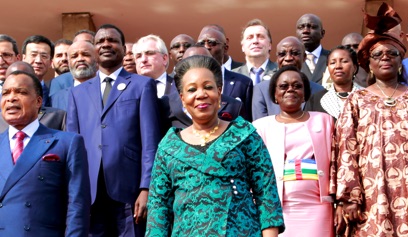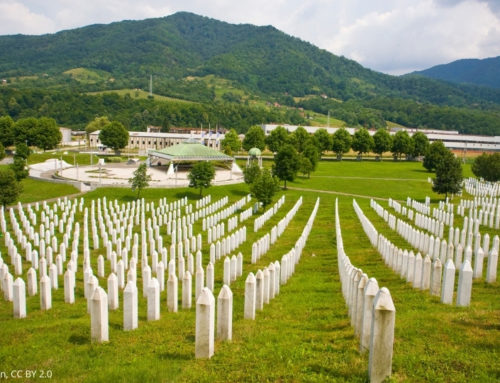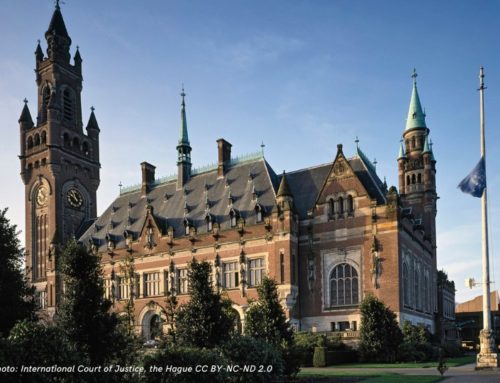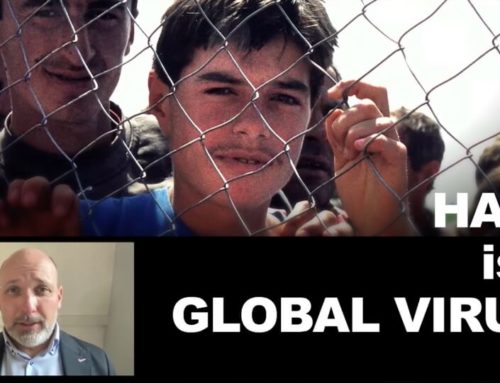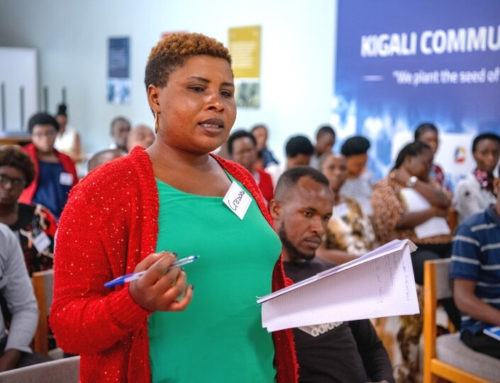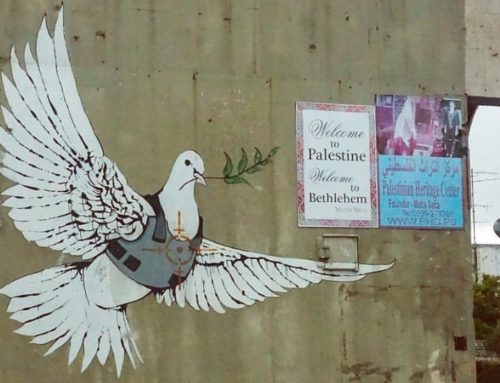Held in the Central African Republic’s capital, 4-11 May, the ‘Bangui Forum for National Reconciliation’ drew around 700 leaders from across the political, religious and social spectrum in CAR, together with interim President Samba-Panza (pictured centre, above) and the leadership of the country’s transitional government. Participants included leaders of the Seleka and Anti-Balaka, rival armed groups involved in the sectarian violence which has ripped CAR apart since 2013, leaving 5,000 people dead and driving over a million from their homes.
Also taking part in the Forum was the Aegis Trust, which is part of a peacebuilding partnership in CAR. This includes Catholic Relief Services, World Vision and Islamic Relief as an interfaith partnership.
Aegis led a delegation to the Bangui Forum from Kigali, to share some of the lessons which have informed its successful peacebuilding work in Rwanda. The delegation included Rwandan Muslim and Christian faith leaders; the former secretary of Rwanda’s National Unity and Reconciliation Commission, and genocide survivor Jean Giraneza – who moved his Central African audience with a story of extraordinary personal reconciliation.
Although to this day he is unable to walk as a result of injuries from a bullet to the head in 1994, Giraneza married into the family of the man who tried to kill him. It was the first marriage across the ethnic divide in his village after the slaughter, which left at least 45 members of Giraneza’s family among the million Tutsi who were murdered. For Central Africans – both at the Forum, and nationwide via TV and radio interviews – the message was clear: former enemies can share a worthwhile future after mass atrocities, even in the most traumatically violated communities.
“People were very moved. I hope our testimonies will have an impact in disarming the hearts and minds of Central Africans,” says Aegis’ Regional Director Freddy Mutanguha, who also shared his personal experience of survival and peace-building with the audience in Bangui.
Freddy has been leading the Aegis Trust’s work with Government and faith leaders in CAR since the genocide prevention group was first invited to the country last year. Impressed by the effectiveness of the Aegis-led drive for peace education in Rwanda – which is now being incorporated into Rwanda’s national Schools Curriculum – Central African leaders want to see something similar implemented in their own country.
“The Aegis Trust has helped Rwanda to rise from the Ashes. We have seen the result: Rwandan youth have understood the past that led them into darkness,” says Dieudonne Nzapalainga, the Catholic Archbishop of Bangui, who last year visited the Kigali Genocide Memorial with Muslim and Protestant leaders from CAR.
“Aegis has a broad understanding of the heart of the matter, and I think here we’re already starting treatment towards solving this crisis,” says CAR Youth Minister Armel Sayo – formerly a military commander in the Seleka coalition.
Indeed, while international attention centred on the Bangui Forum, down the road at the National Stadium Aegis’ Youth Department was hard at work with local youth leaders, staging sporting activities and a peace-building workshop for hundreds of young people from both the Muslim and Christian communities in Bangui.
“There’s a group of dynamic young people working hard to build peace here,” says Aegis’ Kigali-based Youth Coordinator Marc Gwamaka. “We have started a small campaign called ‘Mbi yeke molengue ti be Afrika’ – ‘We are all sons of CAR’. I’m glad to be here, and these guys are excited because they have never done anything like this before.”
On Freddy’s first visit to CAR in 2014, he had been shocked by the atmosphere: “the look in people’s eyes reminded me of Kigali in 1994.” Though peace is still desperately fragile and insecurity remains in Bangui, this time he witnessed something different.
“It was amazing to see young people happy, playing together without thinking about their differences, engaged and responding positively,” he says. “It made it clear to me that engaging young people here in CAR may change the country.”
At its closing plenary, the Bangui Forum adopted several resolutions impressive in their scope. These included a new disarmament and demobilisation agreement, signed by the Seleka and Anti-Balaka with the transitional Government; the release of child soldiers by both militias (numbering up to 10,000, according to UN estimates); a revised timeline for elections (June and July for Parliament, August for the Presidency); creation of a nationwide justice and reconciliation process; and identification of development priorities to try to kickstart the country’s wrecked economy. Within days of signing the agreement, hundreds of child soldiers were released by the militias as a token of their commitment to this new peace deal.
There are multiple threats to the potential for success, factional splits within the militias being the most immediate, followed by the challenges of trying to stage free and fair elections in such an insecure and recently traumatised country.
Right now though, there is a moment, which could be seized and built upon by the international community; a new willingness from some surprising quarters on both sides of the conflict to contemplate reaching out to each other, and a spark of hope for a better future among Bangui’s divided communities.
Whether the World ignores and betrays that hope, or chooses to quickly support and carefully invest in it, may well be the key to a radically better or worse future for CAR. Neither peace-building, nor economic development will be enough on their own – but together they could be transformative.

